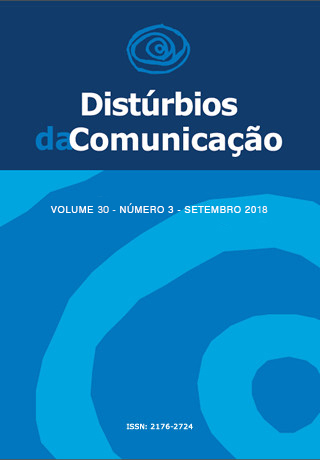Long-latency auditory potential in children with typical development
DOI:
https://doi.org/10.23925/2176-2724.2018v30i3p-585-594Keywords:
Electrophysiology, Evoked Potentials Auditory, Event-Related Potentials, P300, Child, Hearing.Abstract
Introduction: The Long Latency auditory evoked potential is used to evaluate the cortical processing of the acoustic information. Objective: To describe and compare the values of latency and amplitude of the Long Latency Evoked Potential in children. Also, to provide reference values. Material and Method: Quantitative and cross-sectional study. 20 individuals were evaluated with ages between 5:00 -9:11 with typical development. Evoked Potential was performed with the equipment Smart Ep (Intelligent Hearing Systems) with verbal stimuli using insert headphones. Wilcoxon test and Mann-Whitney test were used. Results: There were no statistical significant differences between latency values and components amplitude of this potential, considering variables of ear and gender. The following reference values for components latency and amplitude potential were obtained. Conclusion: By this study, it was possible to propose values of reference for the components of the potential into the sample, considering that no statistically significance difference was found in the variables studied.Downloads
Downloads
Published
Issue
Section
License
Copyright (c) 2018 Amália El Hatal de Souza, Laís Ferreira, Bianca Bertuol, Simone Nicolini de Simoni, Eliara Pinto Vieira Biaggio

This work is licensed under a Creative Commons Attribution 4.0 International License.









